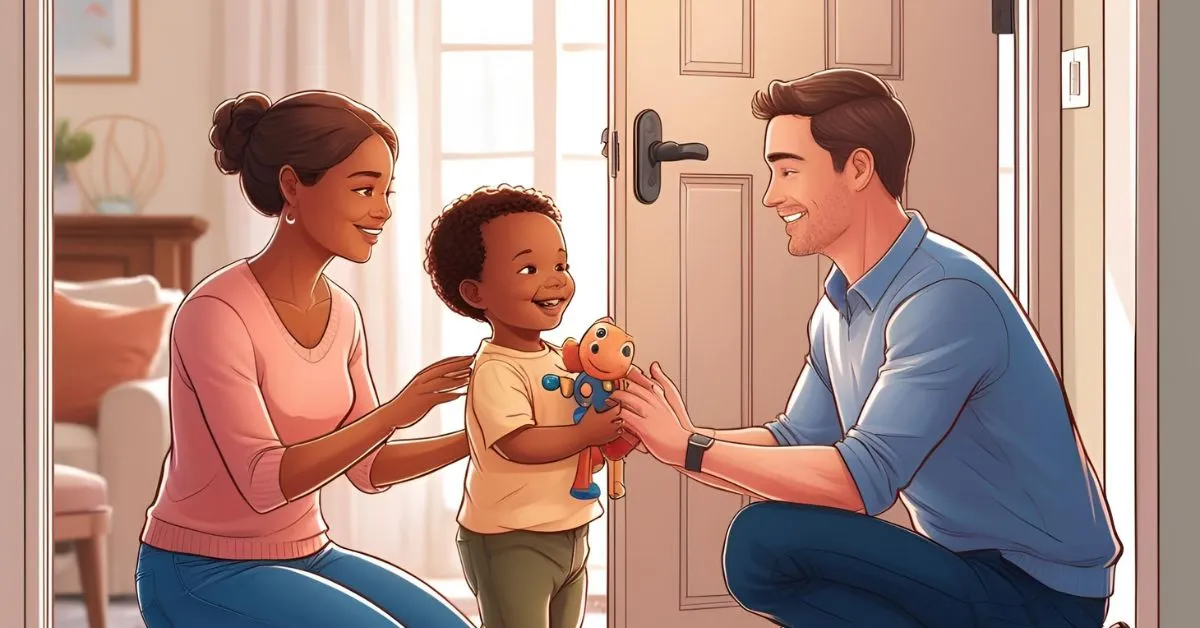Real-Life Tips for Moms Navigating the Toddler Years with Grace
I remember the first time I buckled my toddler into his car seat, knowing he was heading to his dad’s for the weekend. My heart felt like it was being pulled in two directions. I waved goodbye with a smile, but inside, I was unraveling.
Divorce wasn’t part of the plan. But here we were—two households, one tiny human, and a whole lot of emotions.
If you’re in the thick of co-parenting after divorce, especially with little ones, I see you. It’s not easy. But with time, communication, and a whole lot of grace, it can become a journey of growth—for you and your child.
1. Prioritize Your Child’s Emotional Well-being
Your toddler or preschooler may not grasp the complexities of divorce, but they feel the changes deeply. It’s essential to provide them with stability and reassurance.
- Consistent routines: Maintain similar meal times, bedtimes, and rituals in both households.
- Open communication: Use age-appropriate language to explain the situation. For example, “Mommy and Daddy live in different houses, but we both love you very much.”
- Emotional validation: Acknowledge their feelings. If they express sadness or confusion, let them know it’s okay to feel that way.
2. Establish Clear and Respectful Communication with Your Co-Parent
Effective communication is the backbone of successful co-parenting.
- Use neutral language: Focus discussions on your child’s needs rather than personal grievances.
- Set boundaries: Decide on the preferred methods and times for communication.
- Stay child-focused: Keep conversations centered around your child’s well-being and development.
3. Create a Consistent Parenting Plan
A well-structured parenting plan can reduce misunderstandings and provide clarity.
- Define schedules: Clearly outline custody arrangements, holidays, and special occasions.
- Agree on rules: Establish consistent guidelines for discipline, screen time, and other routines.
- Be flexible: Life happens. Be willing to adjust plans when necessary, always keeping your child’s best interests at heart.
4. Avoid Negative Talk About the Other Parent
Children are perceptive. Speaking negatively about your co-parent can cause confusion and emotional distress.
- Keep conversations positive: Focus on your child’s experiences rather than your feelings about your ex.
- Encourage relationships: Support your child’s bond with the other parent, even if it’s challenging for you.
- Seek support: If you’re struggling with resentment or anger, consider therapy or support groups to process your emotions constructively.
5. Utilize Technology to Stay Connected
In today’s digital age, technology can be a valuable tool for co-parenting.
- Shared calendars: Use apps to coordinate schedules, appointments, and activities.
- Communication platforms: Consider using co-parenting apps that facilitate neutral and organized communication.
- Photo sharing: Regularly share pictures and updates to keep both parents involved in daily moments.
6. Encourage Your Child’s Expression of Feelings
Allowing your child to express their emotions fosters resilience and understanding.
- Create a safe space: Let them know it’s okay to talk about their feelings without judgment.
- Use tools: Books, drawings, and play can help young children articulate complex emotions.
- Model emotional intelligence: Share your feelings appropriately to teach them how to handle emotions healthily.
7. Seek Professional Support When Needed
Sometimes, external support can make a significant difference.
- Therapy for children: Child therapists can provide coping strategies tailored to your child’s age and situation.
- Co-parenting counseling: Working with a professional can improve communication and resolve conflicts.
- Support groups: Connecting with other single parents can offer comfort and practical advice.
8. Practice Self-Care and Compassion
Taking care of yourself is not a luxury—it’s a necessity.
- Prioritize rest: Ensure you’re getting enough sleep to handle daily challenges.
- Engage in activities you enjoy: Whether it’s reading, exercising, or spending time with friends, make time for yourself.
- Seek help: Don’t hesitate to ask for support from family, friends, or professionals when needed.
Remember, a well-rested and emotionally healthy parent is better equipped to support their child.
Final Thoughts
Co-parenting after divorce, especially with young children, is a journey filled with challenges and growth. It’s about building a new kind of family dynamic—one rooted in respect, communication, and unwavering love for your child.
You’re not alone in this. With patience, effort, and support, peaceful co-parenting is not just possible—it’s achievable.
💬 Let’s Connect!
Have you navigated co-parenting with toddlers or preschoolers? What strategies worked for you? Share your experiences in the comments below.
📌 Save this post to your parenting board for future reference and share it with fellow moms who might find it helpful.








